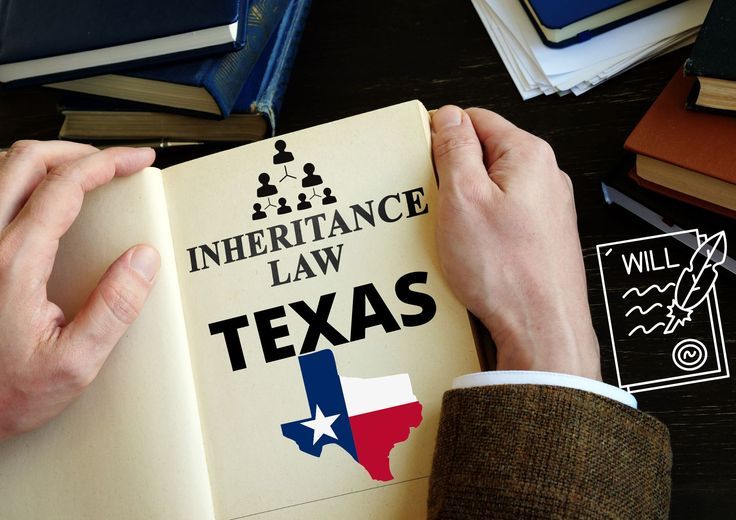Inheritance laws in Texas have changed recently, affecting how property is passed down to family members after someone dies. These new Texas inheritance laws are important for anyone who lives in Texas or has family members there. Understanding these changes can help you plan for the future and make sure your loved ones are taken care of when you’re gone.
This article will explain the new Texas inheritance laws in simple terms so that even a child can understand. Whether you’re curious about how property is divided among family members, what happens if someone dies without a will, or how the new laws affect different types of assets, we’ve got you covered.
What Are Inheritance Laws?
Inheritance laws decide who gets someone’s property after they die. This can include things like homes, cars, money, and personal belongings. If a person leaves a will, the inheritance laws help carry out their wishes. If they die without a will, these laws make sure their property is passed down to the right people, usually their family.
The new Texas inheritance laws change some of the ways this process works, so it’s important to know what these changes are and how they might affect you or your family.
Why Did Texas Change Its Inheritance Laws?
There are several reasons why Texas updated its inheritance laws. Some of these include:
- Simplifying the Process: The new laws aim to make it easier to pass property to family members without long legal battles.
- Protecting Families: These changes ensure that surviving spouses and children are treated fairly, even if there is no will.
- Updating for Modern Times: As families and assets have changed over time, Texas needed to update its laws to keep up with new situations like digital assets and blended families.
Now, let’s dive into some of the key changes in the new Texas inheritance laws.
Key Changes in the New Texas Inheritance Laws
1. Inheritance Without a Will
Under the new Texas inheritance laws, if someone dies without a will, their property will still go to their closest relatives, but the process has been updated. The law now recognizes more modern family situations, such as stepchildren and unmarried couples.
Before these changes, inheritance laws could leave out important family members, especially in complex families. Now, more family members are protected, and it’s easier to determine who gets what.
2. Rights of Surviving Spouses
In Texas, surviving spouses used to face difficulties when it came to inheriting certain types of property, especially if the deceased person had children from another marriage. The new Texas inheritance laws give surviving spouses more rights, making sure they are better taken care of after their partner passes away.
This includes giving surviving spouses a bigger share of the estate, especially in cases where there are no children, or the children are from a different relationship. You Can Also Read This Top Law Schools in Texas: How to Choose the Best Option
3. Digital Assets and Online Accounts
As the world has become more digital, people are leaving behind more than just physical property. Many individuals now have online accounts, such as bank accounts, social media profiles, and digital businesses. The new Texas inheritance laws recognize these digital assets and ensure they are handled just like any other part of the estate.
This means that executors (the people in charge of settling someone’s estate) now have clear guidelines for managing digital accounts and passing them on to the right heirs.
4. Easier Estate Planning
One of the goals of the new Texas inheritance laws is to make estate planning easier for everyone. By updating the rules and providing clearer guidelines, Texas has made it simpler for people to create wills and trusts that reflect their wishes.
This helps prevent confusion after a person dies and makes the inheritance process smoother for their family members. It also encourages more people to plan their estates in advance, ensuring that their assets go where they want them to.
How Do These Changes Affect You?
If you live in Texas or have family there, these changes could have a big impact on your future. Here are a few scenarios where the new Texas inheritance laws might come into play:
- If you don’t have a will: The new laws help ensure that your property is distributed fairly, even if you haven’t written a will.
- If you have a blended family: Children from previous marriages or relationships are now better protected under the new laws, ensuring they inherit a fair share.
- If you have digital assets: The new laws give clear guidelines on how to handle online accounts and other digital property.
- If you’re a surviving spouse: You may have more rights to inherit property from your deceased spouse, even if there are children from previous relationships.
Creating a Will Under the New Texas Inheritance Laws
One of the best ways to protect your family under the new Texas inheritance laws is to create a will. A will is a legal document that states who will inherit your property when you die. It helps avoid confusion and ensures that your wishes are carried out.
Even though the new laws protect family members, having a will makes the process much smoother and faster. It’s also a great way to make sure specific assets go to the people you want to have them.
Steps to Create a Will
- Make a List of Assets: Start by writing down everything you own, including homes, cars, bank accounts, and digital assets.
- Choose Your Heirs: Decide who you want to inherit your property, such as your spouse, children, or other relatives.
- Appoint an Executor: Pick someone you trust to carry out your wishes and manage your estate.
- Create the Will: You can create a will with the help of a lawyer or by using online tools. Just make sure it’s signed and witnessed, so it’s legally binding.
- Update Your Will Regularly: Life changes, and so should your will. Keep it updated if your family or assets change over time.
What Happens If You Die Without a Will?
If you die without a will in Texas, the new inheritance laws will determine how your property is divided. Here’s how the process typically works:
- If You’re Married: Your spouse will inherit most of your property, but other family members, like children, may also get a share.
- If You Have Children from Another Marriage: Your spouse and children will both receive a portion of your estate, ensuring that no one is left out.
- If You’re Single Without Children: Your property will go to your parents or siblings, depending on who is still alive.
Even though the new Texas inheritance laws provide protections, it’s always best to have a will to make sure your property goes exactly where you want it to.
Conclusion
The new Texas inheritance laws are designed to protect families, simplify the inheritance process, and address modern-day issues like digital assets and complex family situations. Whether you have a will or not, these laws will impact how your property is passed down to your loved ones.
By understanding these changes, you can take the necessary steps to ensure your family’s future is secure. Creating a will, planning your estate, and staying informed about the latest laws will give you peace of mind and make the process easier for your heirs.





